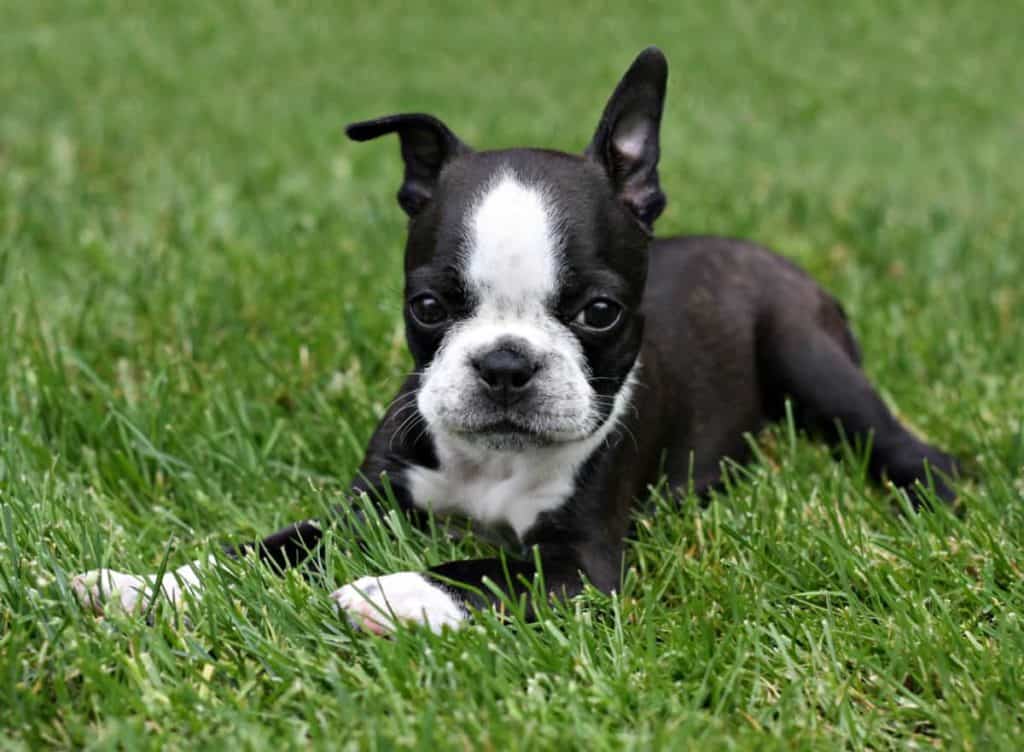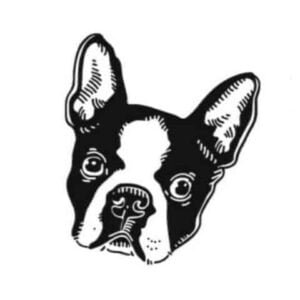Bella my Boston Terrier has been kicking at the grass for years when she pees and poops, but especially after she poops. Lately, she has been doing it more often, which has prompted me to find out why.
Can you imagine it’s a beautiful day outside, and you need to walk your dog. You go over to the usual spot where your pet does there business, and they take a nice big poo. Before you can say “good job” though, your dog starts kicking up your lawn.

In this article, I want to find out. Why has your dog started to kick up your grass? Is this an underlying issue or a behavioral problem. What steps can you take to stop this behavior?
Here is what I found out…
Why Does My Dog Kick Grass After Pooping?
This behavior is because dogs produce pheromones in their feet. When your dog kicks the grass after pooping, it encourages the scent glands to start working harder. Stimulating the glands helps leave a stronger odor other dogs can identify as your pet’s territory along with their waste.
Other Reasons Why Dogs Do This?
Believe it or not, this is entirely normal behavior for most dogs. Many wolves and other canine relatives tend to do this to cover up their mess.
Additionally, this may be a way of marking the territory that the dog has visited. Covering poop is just a way to keep the area the canines roam clean. We don’t always see domesticated dogs do this because the instinct may have been bred out. Kicking after using the bathroom is an action that some dogs do naturally, there is no real way to tell if your puppy is going to be a landscaper.
If you watch closely, dog’s don’t just do this behavior in the grass. Dogs will do the potty dance anywhere they use the bathroom or deem as their territory. Because of this, you may even catch them doing it in your home or other places that they haven’t even been using the bathroom.

Are Any Breeds More Prone To The Bathroom Dance?
Sadly, all breeds of dogs have the same chance of trying to mark their territory. In fact, some smaller breeds or anxious dogs may do it more than others. Whether your dog kicks or not depends on the individual pet.
If you want to avoid grass kicking, you will either need to train your pet or adopt a dog who is fully grown. Keep in mind that a new environment could start this instinct even if your pet has never kicked grass before.
Common Causes For Kicking
Some situations will cause kicking to become more prevalent. One of the biggest reasons is other dogs being present. If you walk your dog in a park always filled with the neighborhood pets, you will probably see the kicking behavior.
This is because the dogs are communicating with each other through scent. Marking can be a way to simply try and create a space for your pet or a ploy to be dominant. Either way, if you’re walking your dog in a multi-dog area, you will see kicking or marking of some sort.
If your dog is new to an area, then this behavior may pop up even without other dogs present. A dog may feel the need to mark what they view as their territory. Claiming territory can be especially appealing in a new unclaimed environment. An anxious dog may even do this to feel more at home in a new place.
Can Excessive Kicking Harm My Dog?
The only time kicking really becomes an issue for your pet is if it is excessive. A dog that tries to kick everywhere it goes runs the risk of injuring a paw. An injury becomes more likely if your dog begins to kick on rough surfaces that could cut their delicate feet. Kicking on the carpet could help the dog create loose strands to consume.
If your dog has the obsessive need to mark their territory, then there may be an underlying behavioral issue. Common causes of excessive kicking are insecurity and anxiety disorders. The latter of these two may require a veterinarians assistance if it becomes severe.
Other than leaving scratch marks and a messy lawn though, kicking isn’t harmful to your pet. Some owners even encourage this behavior when in the woods or other natural settings.

How Can I Prevent It?
If you want to deter your dog from kicking, then there are a few methods you can try. To start with, if your dog is a puppy with this behavior, don’t wait to break it. While the little mess may be cute, it will eventually turn into a bigger problem.
If your puppy starts to kick up dirt, then pull them away with a firm no or stop it. If you’re on walks and your puppy begins to kick try using the “leave it” command while guiding your dog away from the area. If your dog is successful in leaving the spot, then reward them.
If your dog only participates in kicking around other dogs, then change your route. If you can avoid places where other dogs have marked, then your dog won’t be as inclined to retaliate. Avoiding other dogs can be more challenging if you live in a multi-dog neighborhood or your neighbors have a dog. For these situations, repetition and training is the only real way to break the habit.
For dogs with more severe marking problems, you can seek out the help of a trainer who specializes in behavioral correction.
Final thoughts…
Keep in mind that if you plan to train your dog out of this habit, you have to be quick. Make sure you pull the dog away the second your pet starts to kick. This way, they won’t associate the act of using the bathroom with negative consequences. Never scream or punish your dog as this may make them kick more due to feeling anxious.
For more complicated cases, you can use calming treats to help your dog feel more at ease when pooping.
Need help with your grass because your dog is peeing on it too often? Check out this article of mine, “How To Protect Your Lawn From Dog Urine“.
